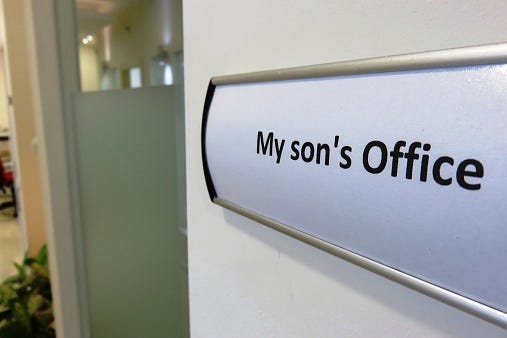Navigating Nepotism: Embracing Community Connections
Written on
Chapter 1: Understanding Nepotism
Nepotism is a prevalent issue in our society, and it's crucial to accept its existence.

Photo by tzahiV on Unsplash
Regrettably, individuals often leverage their connections for personal gain. A person might secure a job within a month due to a referral, while others may struggle for years to achieve the same goal. Nepotism, which is the practice of favoring relatives in hiring or job placements, remains a contentious issue, particularly in the entertainment sector. However, it is a widespread phenomenon across all fields.
While many find this practice exasperating, it is largely beyond our control. The reality is that not everyone is fortunate enough to have influential relatives or extensive networks. Many of us do not come from affluent backgrounds or possess notable connections.
We often perceive this as a form of inequality. Indeed, it is. Opportunities are frequently granted to those with power rather than those who truly deserve them, leading to discontent and resentment towards those who benefit from favoritism. This preferential treatment is evident across various industries, and it becomes even more disheartening when it directly affects our lives. Consider the frustration of applying for numerous jobs, only to discover that the employer selected a relative instead. This can discourage many from pursuing opportunities at such organizations, resulting in a loss of potential talent that may lack connections.
However, I believe we can cultivate our own version of nepotism by tapping into our existing networks. We all have friends from childhood, high school, university, former colleagues, and family acquaintances. Our communities can be powerful assets if we have the courage to leverage them. If someone can easily find a job through family connections, why shouldn't you?
Yet, there’s a vital consideration: approach this with tact. A supportive community thrives on trust and mutual respect. If someone goes out of their way to assist you, it’s important to reciprocate when they need help. Building relationships is a shared effort; it’s not merely about individual gain.
Communities should unite to support one another. Students often require assistance in securing jobs, seniors might need help with daily tasks, and young families may seek childcare support. By aiding others, we ultimately benefit ourselves. Avoid the selfish mindset focused solely on "me, me, me."
Reflect on your network—friends, family, and acquaintances. Assess their current situations: can they assist you, and can you offer help in return? If the answer is "Yes," you have a pathway to simplify your life. After all, isn’t that what we all desire? An easier existence.
This perspective can alleviate our frustrations surrounding nepotism. While not everyone has direct access to such privileges, we can foster our own supportive network through the communities we build around us.
Chapter 2: Embracing Community Support
In the video "Nepotism is Everywhere, I Don't Have a Problem With It: John Abraham at Off The Cuff," the discussion delves into the ubiquity of nepotism and its implications across various fields.
Another insightful video, "There is Nepotism Everywhere in the NBA," explores the prevalence of nepotism in the sports industry, highlighting its impact on opportunities and talent acquisition.